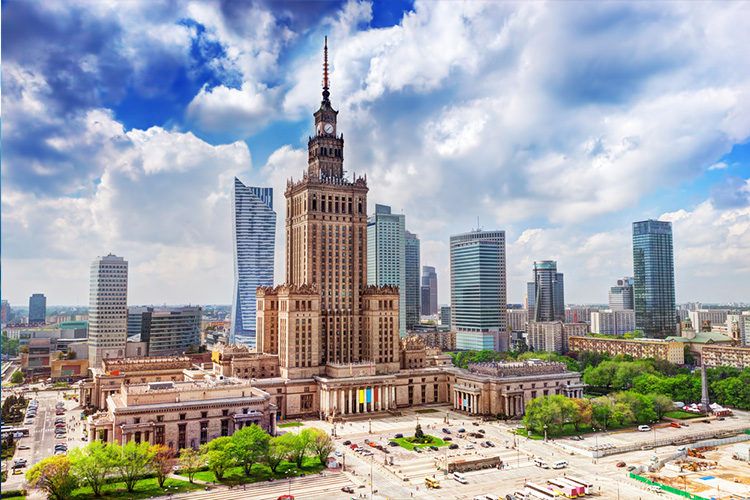

The capital of Poland becomes the first city in the nation to embark on the journey towards climate resilience
November 22, 2023 | Staff Reporter | Poland | Facilities Management

Poland’s capital Warsaw has become the country’s first city to join the Green Cities framework, the European Bank of Reconstruction and Development (EBRD) programme that supports cities on the journey towards climate resilience and adaptation.
British firm Arup worked closely with EBRD and the city of Warsaw to jointly develop the Green City Climate & Action Plan. Its work for EBRD’s Green City Action Plan (GCAP) was combined with the C40s’ Climate Action Plan into Warsaw’s Green Vision, which targets six focus areas to turn the city into a healthier, more resilient and sustainable place for all residents.
By enhancing the use of smart energy, blue-green infrastructure, spatial planning, transport, waste management and social awareness, Warsaw should be able to reduce greenhouse gas emissions by 40% by 2030 while realising significant yearly savings. To help bring the plan to life, the Green Vision roadmap identifies 27 specific actions for the city alongside relevant funding opportunities. The project was jointly funded by the TaiwanBusiness – EBRD Technical Cooperation Fund and the Government of Poland.
Arup’s experts engaged in a comprehensive public consultation with 25 city institutions, NGOs, universities and private companies to develop a coherent, feasible, and cost effective roadmap of actions. Together with EBRD, the team delivered over 20 workshops using Arup’s Virtual Engage interactive environment to facilitate active feedback.
The 27-step Warsaw Green Vision roadmap will help the city reduce greenhouse gas emissions by 40% by 2030 and adopt renewable energy, while tackling urban biodiversity loss, improving water quality, reducing municipal waste, and preventing local flooding and soil degradation in post-industrial areas. If all steps were to be implemented together, the city could realise annual savings of up to 608 m PLN (132 million euro).
Energy poverty is a significant challenge to cutting carbon emissions in Poland, with many households powered by coal. To support the transition, Warsaw’s Green Vision plans recommends increasing funding to the city’s coal-to-gas switch programme, alongside the creation of a co-financing programme to transition from gas to heat pumps. The implementation of these programmes could lead to the potential reduction of up to 1 million tonnes of CO2 emissions as estimated through a benchmark analysis by experts from Arup and C40 Cities.
To further reduce CO2 emissions, the Green Vision proposes measures such as urban greening, allocating more street space to trees and cycling infrastructure and the restoration of valuable natural areas such as the Wawer meander, a picturesque marsh and meadow area to the south-east of the city.